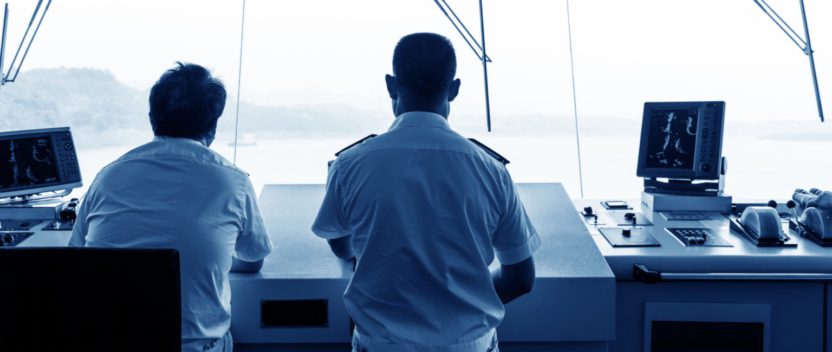Denmark travels to the future
The Danish Maritime Days are over, or soon will be. The budget has been spent and whether the event goes into a fourth year in 2017 remains to be seen. DMD has carved out an interesting niche in an industry overpopulated with conferences, exhibitions and gala dinners. By including an invitation-only forum it has been able to engage industry leaders in debate and closed doors discussion far more granular than the average panel session.
Parts of the forum are open and the opening plenary saw Financial Times journalist Gillian Tett moderate a group of industry speakers from regulation, shipowning, research and logistics.
The theme, of adapting to ‘The New Normal’ starts with the contention that history doesn’t always go in straight lines and trends won’t always continue, they can also go into reverse.
For example, the rise of Donald Trump’s brand of populism shows that ‘good, old fashioned protectionism’ is back and that the cyclical model so beloved of shipowners are being impacted laterally by structural swings too.
“There are three Ds,” she said. “The Donald [Trump], digital disruption and the dirty diesel debate.” The fact that this makes six conveys the complexity of the subject: the political, the digital and the environmental issues need to be looked at in terms of rest of the world and not in isolation.
But that need not all be bad she said. “Crisis is often the only thing that drives radical reform,” she added. “Not all owners are frogs in a slowly warming saucepan, some are being dropped into boiling water.”
What would the container industry look like in five years, she asked CMA CGM’s Rodolphe Saade. Hard to say, he replied, when he is not sure what will happen tomorrow. There is likely to be consolidation and chances to take out capacity but he said “there needs to be a price for everything. We have to understand that just taking rates down is not an answer. There will still be price wars but decent price wars.”
What about new market entrants – could players from different regions make an impact? Potentially, yes he thought and Dr Amy Jadesimi, MD of Nigerian logistics company LADOL agreed.
Global growth needs increased capacity in the right places and indigenous transport groups that are pro-local might have an opportunity to displace western players, she said.
While more regionalisation might mean fewer tonne-miles, Saade added there could be more intra regional business growth, so perhaps the next decade would see trade move from an era of a globalised supply chain to one of localisation and greater protectionism.
Is Europe heading for protectionism, she asked DG MOVE Commissioner Fotis Karamitsos? He thought not, but he suggested that should shipping face strong measures from an Asian economy, why should it stay the model of an open market?
The Commission comes in for plenty of criticism for the unilateral, regional regulations it develops, because it despairs of IMO’s pace of progress. But Karamitsos said the commission had a ‘much better working relationship with the private sector in terms of co-operation, there has been a dramatic improvement in the last few years’. There are still challenges and there was an ominous ring to his comment that the role of the EU was ‘still not as strong in shipping as it is in aviation’.
The question of transparency – so often posited as a barrier to new business models in shipping was considered from the reverse angle by Christine Loh, Undersecretary for the Environment in Hong Kong and a former environmental activist.
Shipping remains vital for the development of economies in Asia she said, but there was still lack of coverage of its environmental programmes.
“Are the Paris signatories going to adhere to the agreement? If so, every five years there will be new commitments and they will constantly come to the industry and community for ideas,” she said.
What surprised her was the ignorance of the rest of the world to what was being accomplished in China. Hong Kong will enact Emission Control Areas in 2019 and China had created a policy paper setting out its vision on the shipping sector and shipbuilding, but to little feedback. Other governments in Asia might be pushed into doing similar things, she suggested.
Here too, the environmental agenda in the future could be driven by unilateral measures. Loh said China discussed with IMO making the southern Pearl river into mini-ECA but was discouraged. But because air pollution is a national crisis and because there is a direct benefit from fuel switching, its port ECA plan went ahead. Still the IMO should move faster she said.
So might there be a case for ‘reverse innovation’ with ideas born in Africa and China travelling to Europe rather than the other way around? Loh thought so and the need is pressing in a country with both a space programme and terrible levels of poverty. The economy both old and new could contribute.
Jadesimi said she favoured the concept of cross-border collaboration over globalisation because it assumed a fairer exchange and in Africa there is capacity to spare. Developing its supply chain infrastructure from the ground has the potential to put African countries ahead of Europe.
“Local content is essential to global growth but there has always been asymmetry of information and power so we export commodities and don’t import jobs. This will change and it will be pushed by people who aren’t in this room, she said.
For shipping lines, the survival instinct has traditionally meant vertical integration and extension of its business into areas where it can chase new revenues, something that CMA CGM among others has done in the past. That may not be the case in the future as disrupters find routes into the market by taking parts of the business that are less asset intensive and focussed more on value.
Being vertically integrated is not always the answer, you need expertise of others,” said Dr Jadesimi. “There is some lack of transparency needed but also an opportunity to make it more efficient.”


